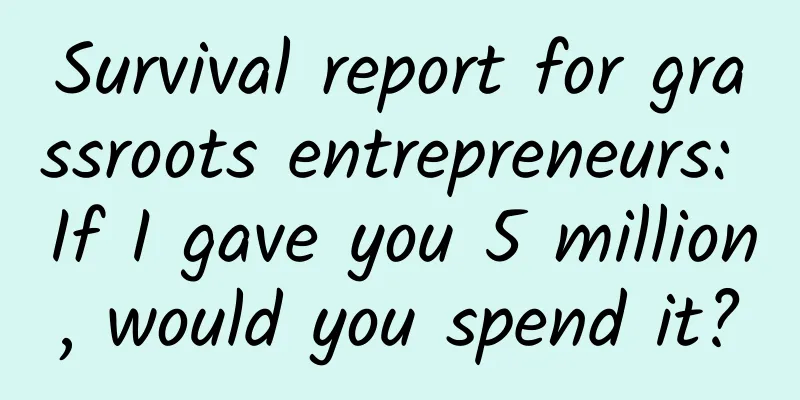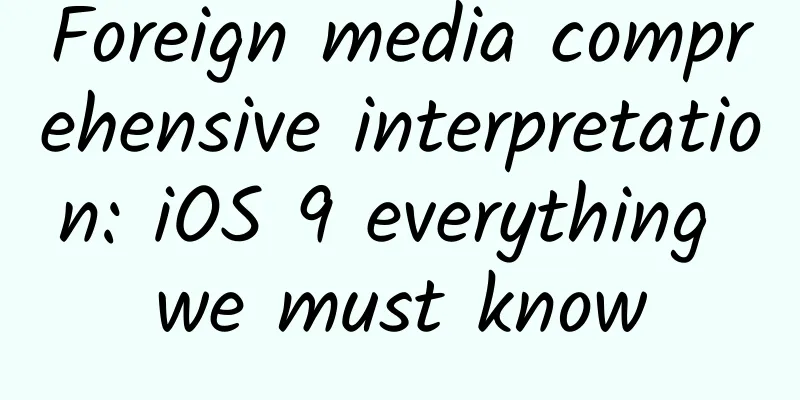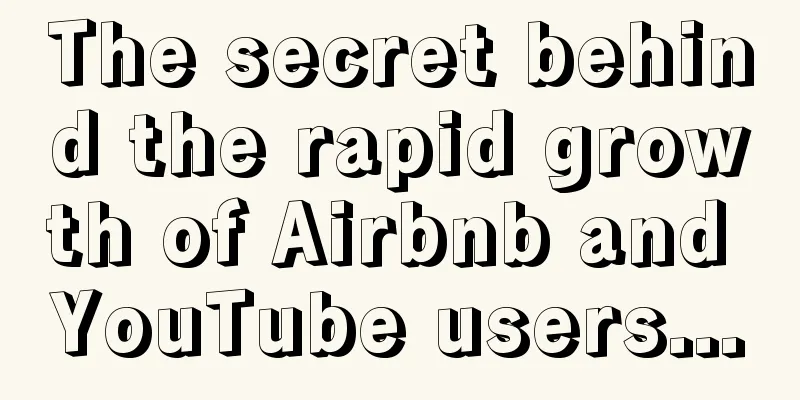Survival report for grassroots entrepreneurs: If I gave you 5 million, would you spend it?

|
The Internet is not the world of BAT, but the world of star companies such as Meituan, JD.com, and Ctrip. But it is also the world of grassroots entrepreneurs. They do not have a deep financing background, strong technical support, and some may just be a small team with not much funding. Their survival status deserves more attention. Based on this starting point, the author's survival report for grassroots entrepreneurs is released, and here is a summary of the entrepreneurial teams and common problems I have come into contact with. Most entrepreneurs may have to deal with the problem of burning money. It is not only Meituan and JD.com that are burning money, but also small platforms. It is not that you want to burn money, but the environment forces you to do so. The bad habit of buying users has been made into an industry practice by the big guys. Although small teams are not so willful as to offer a city-wide "15 off for purchases over 20 yuan", they still have to burn money on a large scale by halving the first order. In the wave of entrepreneurship, not everyone is eager for capital. Apart from the fear of excessive dilution of shares, many teams are afraid of sudden financing. If you are given 5 million, they dare not spend it. In this case, let's talk about how to spend the 5 million. First, let's state our point of view: mainly subsidize merchants, supplemented by users, pay attention to the media, and at the same time improve the treatment of the team. The money must be spent on the right things. Merchants are the men behind the platform. Many people say that it is necessary to burn money to subsidize users. I disagree. Users need subsidies, but they must not be the bulk. I have seen countless ground promotions, and all I have seen are examples of teams dying after running out of money. Instead of investing endless money in users, only to see them unfollowed, why do you invest limited funds in merchants, subsidize merchants, and direct the merchants' traffic to the platform. Many people will retort that how can the users that merchants have obtained be diverted to the platform? Merchants are all smart. This statement is true, but it mainly depends on the products you provide. If it is a simple tool that helps merchants expand resources and solve the needs of users in the store, why don't merchants accept it? Add the sugar-coated bullet of your subsidy, and this thing may be successful. This reminds me of the case of "Huihui Shopping Assistant". As a price comparison case, it is exclusive to e-commerce, which will cause user diversion, but it is affordable and convenient for users. With various subsidies, it eventually became a product that users are satisfied with and merchants accept. Everyone is doing merchant subsidies, but just giving money is not enough. You still have to be sincere and constantly improve the platform functions according to the needs of merchants. Large platforms like Meituan Nuomi are strong in many users and a wide range of people, but their shortcomings are also very clear. There is too little research on the specific needs of each merchant, which happens to be the advantage of small platforms (so-called grassroots entrepreneurs). I don’t have so many customers. I can improve the platform according to the needs of every customer I can expand to. This requires sincerity. Don’t be stupid and learn from large platforms to directly give subsidies to merchants. Think more about what they need. After all, whether you are willing to subsidize or not is still a matter of whether they want it. The most important point is that you must not ignore the power of offline merchants. Many cases have shown that no matter whether it is car washing, breakfast, or beauty, those who clamored to rely on Internet platforms to subvert offline stores have died miserably. Think more about how to bring offline merchants to play together, compare yourself to a tool, and use technical means to fix offline problems, instead of talking about subversion all the time, arguing about right and wrong, and fighting to the death. The dead platforms have proved that this is self-destructive. Users value benefits more than needs, and mindlessly following the trend will only hurt others and yourself Burning users is what all grassroots entrepreneurs are doing now, or will do in the future. But I advise that you should stop burning users as soon as possible.
Meituan and Didi’s investment of nearly 10 billion yuan tells us that user habits can be cultivated but it is very expensive, and users are fickle and profit-seeking. If you use the 5 million yuan you have on hand to subsidize users, not to mention the whole country, even if you only charge one yuan for the first order in a few districts of Xi’an, it will not last for less than a month. This is the current situation. So can we change our thinking and spend 200,000 yuan to organize free store visits and experiences, spend 200,000 yuan to sponsor a campus singing competition, and spend 100,000 yuan to sponsor a community square dance competition? I believe that this way of spending money is much better than using a single page to promote a "20 minus 15" promotion.
It's not just grassroots entrepreneurial teams. Many successful large companies are doing similar activities, such as Nongfu Spring's "Consumer Tour of Qiandao Lake", Jinjiu's "Follow the Travel", Xifeng's "Visit the Ancient Town Wine Cellar", etc. To give another example, does a food delivery platform get good user reputation by trying every possible way to pay for subsidies, put on the APP homepage, or carefully organize a kitchen tour and vegetable picking activities? Last week, Ele.me and other platforms were exposed for not meeting the hygiene standards of the food delivery source. This alone instantly made all the "15 off for every 20" and APP headline recommendations go up in smoke. Platforms that just mindlessly burn users often capsize and die when encountering such a storm, and those that survive are often those who know how to burn money and provide services. Sometimes, whether a platform is doing well is not a question of whether it has money or not, but the difference in IQ. As a grassroots entrepreneur, you don't have that much money. You should be more objective and rational when dealing with the issue of burning users. You should use both soft and hard tactics and have your own ideas. Don't just follow the crowd. The most frightening thing about starting a business is to follow the crowd. In such a large country like China, don't think that your ideas are so awesome and unmatched. Others have also thought of the ideas you can think of. Looking back at the platforms that have survived, they either have godfathers to support them, or they are dedicated to making products and smart in marketing. After all, those who can stand out from these hundreds of millions of people are all smart people.
The media is the boss. You can’t be timid or irritated. You must learn to treat it rationally. The relationship between platforms and media has always been one of mutual harm and mutual complementation. Yesterday, Wanda's Wang Jianlin sued the WeChat public account "Top Entrepreneur Thinking", which is a case of mutual harm.
When I was an editor at a portal website, I was well aware that a pop-up ad on the homepage with a page view of 100,000 would only be read 200 times. This was achieved by paying a daily rate of 50,000. But it must be there. Users may not know what you do specifically, but the meaning of advertising is to display your name and logo enough times so that the first thing that comes to users' minds when they buy a similar product next time is your product brand. That's enough.
Finally, let's talk about the corporate public relations of the platform. The media itself is actually neither good nor bad. The problem lies in the people who operate it. Wanda took great pains to sue a public account yesterday. This was unthinkable in the previous business model. The only reason they could do this was because the adverse impact was too great. In today's era of self-media, the communication power of a WeChat account with more than 100,000 followers can be comparable to that of a medium-sized website, and it is a vertical, highly targeted communication. The expansion of communication channels has also increased the difficulty of content review. Many entrepreneurial platforms will not respond calmly when encountering crisis events. They will either fight to the end with the media and deny it, or ignore it and do not consider an effective solution. In the end, under the magnification of the media, it will cause irreparable user losses and lead to a mess of word of mouth. There are countless such cases. This shows that when encountering a quarrel with the media, you must be prepared and respond strategically. You should take action when you need to, just like Wanda's strong lawsuit against the official account. The strong party always picks on the weak. If you don't know how to deal with it, you will only be beaten. Be kind to your fellow entrepreneurs, don't give them less money and don't let them get wronged. Everyone in the industry knows that starting a business is an extremely difficult thing, especially for grassroots entrepreneurs. The most fearful thing is not lack of money, but lack of people. Therefore, those brothers who work with you without compensation must not be treated unfairly. Part of the money I mentioned must be burned on them. This does not mean that you should give them money directly. Most of the people who can follow you wholeheartedly are not for money. In terms of salary, you can give 5,000 instead of 3,000.
In my opinion, the bottom-level entrepreneurial team should not be underpaid, and people should not be wronged. If a programmer is paid 4,500 yuan when the market price is 5,000 yuan, it will be considered that the boss is too stingy and exploits employees. But if you pay 5,500 yuan, he will be grateful to the team and create value far higher than 5,500 yuan itself. Whether it is saved or earned, you can see it, so take a long-term view. A reliable entrepreneurial team is as important as users, they are the "core productivity". I will talk about the part about team management separately because it is too important. Xishaoye Roujiamo, a bottom-level project with wireless prospects, was hit hard because of team problems. These are all lessons. Although the grassroots entrepreneurial team is small in scale and small in number, it often faces and exposes problems that are no less than those of large teams. If these problems are not handled in time, they will not be gradually solved under the cover of capital like the wealthy owners, but will eventually be magnified due to the embarrassment of the team having no money and no people, and become fatal problems. Let's go back to the question at the beginning of the article. If you are given 5 million, would you dare to burn it? Would you burn it? Will it bring you great money or set yourself on fire? After reading the above analysis, I believe you have the answer. |
<<: Contribution | The technology carrier behind Alibaba's mobile e-commerce
Recommend
Internet finance operation | 4 stages to help you quickly increase your repurchase rate!
The repurchase rate refers to the number of times...
Changsha Tea Drinking and Tasting 2022 Audition Venue, Highly Recommended for You with Rich Nightlife
Changsha's 2022 tea drinking and tasting audi...
Advertising creatives are always rejected? Tips for getting advertising creatives reviewed!
In the past two years, the trend of "materia...
WeChat opens JS SDK, giving browsers another lesson
2015 has just begun, and the WeChat JS SDK was re...
The data and effects of major mobile game launches are all here!
Mobile game traffic has three main sources: chann...
What are the functions of the Guangzhou WeChat decoration mini program? How much does it cost to make a house decoration mini program?
With the slowdown of real estate, related industr...
The evolution of the Android ecosystem in the past five years
The first Android phone G1 jointly developed by G...
A must-read for APP promotion, complete promotion data analysis in 3 steps!
When I was reporting business dynamics to the bos...
One article to completely improve the conversion rate of landing pages!
The article is very long and you may not be able ...
Tik Tok live broadcast 1 yuan flash sale, low-cost daily income of 100,000+ gameplay [Video Course]
Tik Tok live broadcast 1 yuan flash sale, low-cos...
Automatic iOS updates can make you late for work the next day
According to the latest news from foreign media, ...
How to get the most accurate users with the least money?
I selected some data and screenshots from my adve...
A complete collection of online marketing videos for 19.9 yuan: including SEO, SEM, website building, website imitation, and online marketing promotion worth 20,000 yuan!
Learning materials worth 20,000 only cost 19.9 yu...
Why do we say that the seemingly powerful WeChat ecosystem has begun to wither?
Friends who are interested, please think back, in...
From NetEase Cloud Music to DJI, how was the “subway package” masterpiece created?
Shenzhen Metro Line 1 has been soaring these two ...









